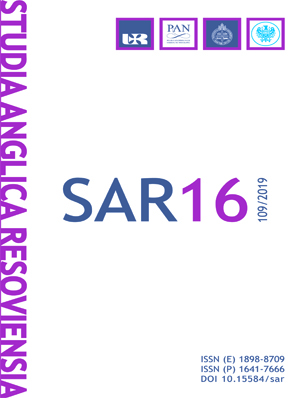Folk Etymology: Escape from the Unknown, the Obscure and Nothing More?
DOI:
https://doi.org/10.15584/sar.2019.16.5Keywords:
folk etymology, obscurity in language, change of form, provincialism-shunning aestheticsAbstract
The mechanism of folk-etymology has received considerable attention from both laymen and those scholars that are busy analyzing natural languages, and although much has been said about the issue of determining the scope of the phenomena the mechanism encompasses, and the way the instances of its operation can be classified, many questions remain unanswered. In linguistic tradition, folk etymologizing is usually viewed as being motivated by the natural human wish to escape from what is illogical and obscure, and so it is viewed by, for example, Rundblad and Kronenfeld (2000). Yet, we are convinced that one may point to other motivating forces operative here, the forces that lie within the scope of broadly-understood ideology and provincialism-shunning aesthetics.Downloads
Download data is not yet available.
Downloads
Published
2019-12-15
How to Cite
Kleparski, G. A. (2019). Folk Etymology: Escape from the Unknown, the Obscure and Nothing More?. Studia Anglica Resoviensia, 16, 60–70. https://doi.org/10.15584/sar.2019.16.5
Issue
Section
Articles
License
Copyright (c) 2019 Studia Anglica Resoviensia

This work is licensed under a Creative Commons Attribution-NonCommercial 4.0 International License.

